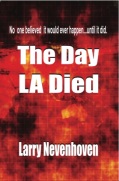 Click on following for earlier articles: Part 1, Part 2, Part 3 Part 4 and Part 5.
Click on following for earlier articles: Part 1, Part 2, Part 3 Part 4 and Part 5.
And He summoned the twelve and began to send them out in pairs and gave them authority…(Mark 6:7)
And Jesus came up and spoke to them, saying, “All authority has been given to Me in heaven and on earth. Go therefore and make disciples…(Matthew 28:18-19)
When Jesus sends His apostles, prophets, evangelists, pastors and teachers, He gives them authority. But what can this authority be used for?
In the New American Standard Bible, the English word authority appears in 75 verses of the New Testament. Fifty-nine times, the word is translated from the Greek word exousia (Strongs’ #1849).
Behold, I have given you authority [exousia] to tread on serpents and scorpions, and over all the power of the enemy, and nothing will injure you. (Luke 10:19)
For even if I boast somewhat further about our authority [exousia], which the Lord gave for building you up and not for destroying you, I will not be put to shame. (2 Corinthians 10:8)
Never once in the fifty-nine verses where the Greek word exousia is translated into the English word authority does the context of the verse imply that a person can wield authority over a believer’s life. Not once!
But rather the authority in these fifty-nine verses is limited to being used against demons, sickness, disease, all the power of the enemy and to build up or encourage believers. That’s it!
Now, if you’ve done your math, there are sixteen other verses not covered in the above explanation, right?
For we never came with flattering speech, as you know, nor with a pretext for greed – God is witness – nor did we seek glory from men, either from you or from others, even though as apostles of Christ we might have asserted our authority [baros, Strongs’ #922]. But we proved to be gentle among you, as a nursing mother tenderly cares for her own children. (2 Thessalonians 2:5- 7)
If you lift verse 6 out of context in the above scriptures, it looks like the apostle has authority to impose a burden on believers. But if you read all three verses, you see that Paul is making the point of why he can’t impose a burden. He is a nursing mother to his children. The Amplified Bible states it this way:
…though we might have asserted our authority [stood on our dignity and claimed honor] as apostles (special missionaries) of Christ (the Messiah). (2 Thessalonians 2:6)
Here is another often-quoted authority verse:
These things speak and exhort and reprove with all authority [epitage Strong’s #2003]. Let no one disregard you. (Titus 2: 15)
The Greek word epitage is translated authority in this verse, but it really means commandment or mandate; and it may or may not be backed by the power of the Lord.
Almost all of the other verses where the word authority appears in the New Testament, refer to a nation’s government exercising authority and wielding power over its citizens. The major exception is the following:
For you know what commandments we gave you by the authority [kyrios, Strong’s #2962] of the Lord Jesus. (1 Thessalonians 4:2)
Thus, scripture states that the authority of the apostle, prophet, evangelist, pastor and teacher is not to be wielded against a believer. But instead, the authority is to be used against Satan and to encourage believers. And also, at times, the Lord may give special authority to people for carrying out a task.
So, how was I set free from the prison with a steeple on the roof?
(Continued in Part 7)





 In early 1994, I attended a friend’s funeral in Illinois. What was so unusual about this funeral is that I had two encounters with the Holy Spirit while I was inside the church. The one experience, I wrote about in
In early 1994, I attended a friend’s funeral in Illinois. What was so unusual about this funeral is that I had two encounters with the Holy Spirit while I was inside the church. The one experience, I wrote about in 











